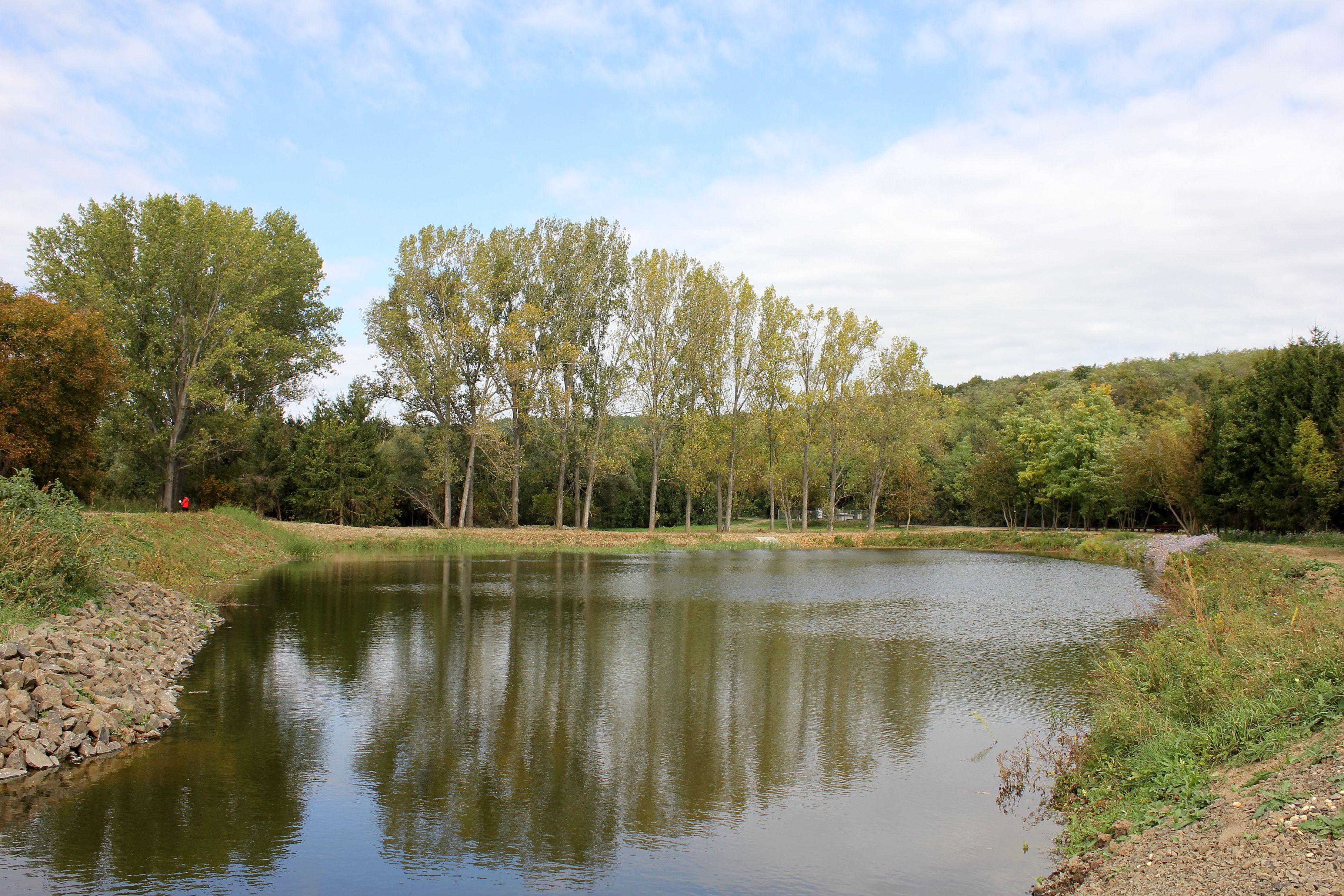Increasingly extreme temperature, hydrology, or other meteorological phenomena are some of the most widely predicted impacts of climate change. This applies to Hungary as well, where rainfall is already limited (potential evapotranspiration exceeds precipitation throughout most of the country), and climate models predict a more unbalanced distribution of precipitation for the next decades to come. To put it in other words, we will face longer periods of droughts, and more frequent and more extreme rain and flooding events. Nature-Based Water Retention Measures (NWRMs) offer one of the cheapest, and most nature friendly ways to adapt to these new circumstances.
At Püspökszilágy, a small settlement nestled in the Cserhát Hills of in northern Hungary with just under 900 inhabitants, sudden, intense precipitation events cause flash-flooding every two to five years. The floods are short in duration, but the devastation they leave behind is no smaller than that of a long-duration flood event. The situation is worsened by inappropriate land-use on the upper watershed, where large unfragmented parcels of arable land increase the velocity of runoff, which in turn leads to intense soil erosion and low infiltration. At the same time, summer months often bring intense droughts and heatwaves, negatively affecting agriculture, forestry, and the inhabitants of the village.
Under the LIFE-MICACC Project, which aims at increasing the adaptation capacity of small Hungarian settlements to climate change, we have created a 1 ha side-reservoir beside the Szilágyi Stream which helps retain water from flash-flood events. As such, it is capable of protecting both village infrastructure from flash flooding, and mitigates summer droughts and heatwaves by replenishing groundwater resources and cooling the micro-climate through evaporation. On the upper watershed, leaky wooden check-dams were installed in erosional gullies to halt soil erosion and decrease the speed at which water rushes into the settlement.
Read more at World Wide Fund For Nature
Image: WWF-Hungary has created a 1 ha side-reservoir in Püspökszilágy which helps retain water from flash-flood events and and mitigates summer droughts. (Credit: © WWF-Hungary)


